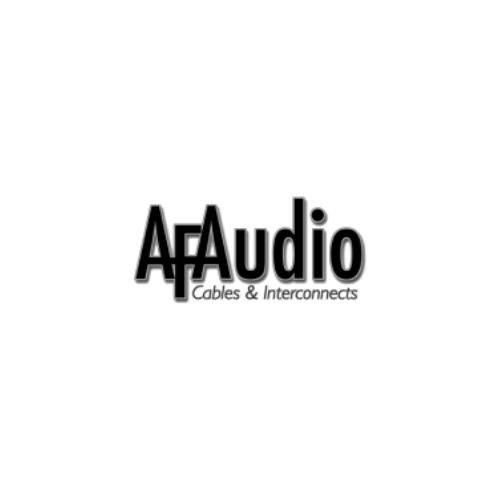


Explore how RCA audio cables work, why they remain vital in 2025, and how to optimize them for pristine analog sound at home or in the studio.
Burton on Trent, Staffordshire – 27 June 2025 — In an era of lossless streaming, Bluetooth 5.4, and HDMI 2.1, one humble two-pin connector continues to move music lovers, recording engineers, and home-theater fans alike: the RCA audio cable. Its familiar red-and-white plugs deliver everything from vinyl warmth to sub-bass rumble, yet the question resurfaces with every new generation of listeners: “How does RCA audio cable work?”
Today AfAudio a global innovator in consumer-electronics accessories, releases an expansive educational initiative—including videos, infographics, and this detailed press statement—to explain exactly how an RCA audio cable works, why it remains relevant, and how users can maximize its performance well into the digital future.
The RCA connector—named for the Radio Corporation of America—debuted in 1942 to simplify cinema-projector hookups. By the 1950s it had migrated to living-room televisions and Hi-Fi consoles; by the 1980s it was the universal language of VCRs, CD players, and early game systems. Eighty-three years later, hundreds of millions of new RCA cables are still sold annually, according to AV Market Insights 2024. Longevity on that scale sparks curiosity: what’s under the hood of this ageless technology?
Single-Ended Analog Transmission
Each RCA plug carries one channel of audio—right (red) or left (white/black). A tiny AC voltage representing the sound waveform travels down the center conductor, while the outer ring provides ground reference. The two together complete an unbalanced circuit, simple yet effective for cable runs under 6 m (20 ft).
Conductors and Dielectric
Most quality RCA cables use oxygen-free copper (OFC) strands for the core, wrapped in polyethylene or Teflon insulation. The low-resistance conductor preserves signal integrity; the dielectric prevents shorts and maintains consistent impedance.
Shielding Against Noise
A spiral copper braid or aluminum-mylar foil surrounds the dielectric, absorbing radio-frequency interference (RFI) and 50/60 Hz hum. This shield is soldered to the outer shell of each plug, ensuring unwanted energy is drained to ground rather than into your speakers.
Plug Geometry
The male RCA plug features a 6 mm center pin and a springy outer barrel. Combined with a matching female jack, it creates a snug, self-centering contact that resists accidental pull-out yet inserts with minimal force—still one of the most user-friendly interfaces in AV history.
Instant, Software-Free Connection
Because RCA is purely analog, there are no digital handshakes, codecs, or firmware updates. Plug the cable in, and sound flows—perfect for troubleshooting or mixing vintage and modern components.
Warmth & Character — Many musicians and vinyl aficionados prefer the continuous waveform of analog for its organic feel, free of quantization artifacts.
Legacy Compatibility — Millions of turntables, cassette decks, and older receivers rely exclusively on RCA outputs and inputs.
Cost-Effectiveness — A high-grade 2-m RCA pair can cost less than a mid-tier HDMI cable or wireless transmitter.
Low-Latency Monitoring — Studios use RCA (and its professional cousin, unbalanced TS) for near-zero-latency cue mixes—crucial when tracking vocals or instruments.
| Sector | Source Device | Destination | RCA Role |
|---|---|---|---|
| Home Theater | Blu-ray, set-top box | Subwoofer/L-R analog input | Discrete bass channel & zone-2 audio |
| Hi-Fi Listening | Turntable with preamp | Integrated amplifier | Preserves phono warmth |
| Content Creation | Audio interface | Powered monitors | Low-latency control-room playback |
| Automotive | Head unit | External amplifier | Clean stereo feed over short runs |
Keep Runs Short & Separate
Under 3 m is ideal. Cross audio and power cables at 90 degrees to minimize induced hum.
Choose Proper Gauge & Shield
Thicker 22-24 AWG conductors and dual-braid shields reduce resistance and noise.
Opt for Gold or Rhodium Plating in Harsh Environments
These metals resist corrosion, ensuring years of crackle-free playback.
Label Everything
Simple color sleeves or printed tags prevent left-right swaps when gear moves.
Clean Contacts Annually
Isopropyl alcohol swabs remove oxidation; contact enhancer can further lower micro-resistance.
“When clients ask me how does RCA audio cable work, I show them a scope trace—clean, wide-bandwidth, zero dropouts. For signals shorter than 15 feet, RCA still wins on simplicity and price.”
— Rick Huang, Senior AV Integrator, SoundSphere Ltd.
“Our mastering chain blends vintage tube EQs and modern converters; RCA interconnects keep the old gear talking to the new without extra adapters.”
— Elena Morales, Chief Engineer, GoldLine Mastering
To celebrate the connector’s eighth decade,AfAudio today unveils Analog Audio 101, a multi-format learning portal featuring:
Animated Explainer Video: 3-minute primer on how RCA audio cables work.
Interactive Cable Builder: Users pick conductor material, length, jacket color, then receive real-time pricing.
Noise-Fix Wizard: Step-by-step flowchart for diagnosing hum, buzz, and ground loops.
Sustainability Spotlight: Tips on recycling old cables and upgrading only what you need.
Registering for the hub unlocks a 10 % discount on the company’s new Precision-Shield™ RCA series, which pairs quad-layer shielding with carbon-infused dielectric to tame interference in crowded apartment setups.
Founded in 2010, AfAudio designs and manufactures high-performance AV cables, adapters, and smart-home solutions sold in 42 countries. Guided by the principles of clarity, durability, and ease-of-use, the firm’s engineering team blends classic analog know-how with future-ready materials to help customers enjoy immersive entertainment without technical headaches.
Media Contact:
AfAudio | PR & Partnerships Lead
Email: [email protected] | Tel: 07545 197766
